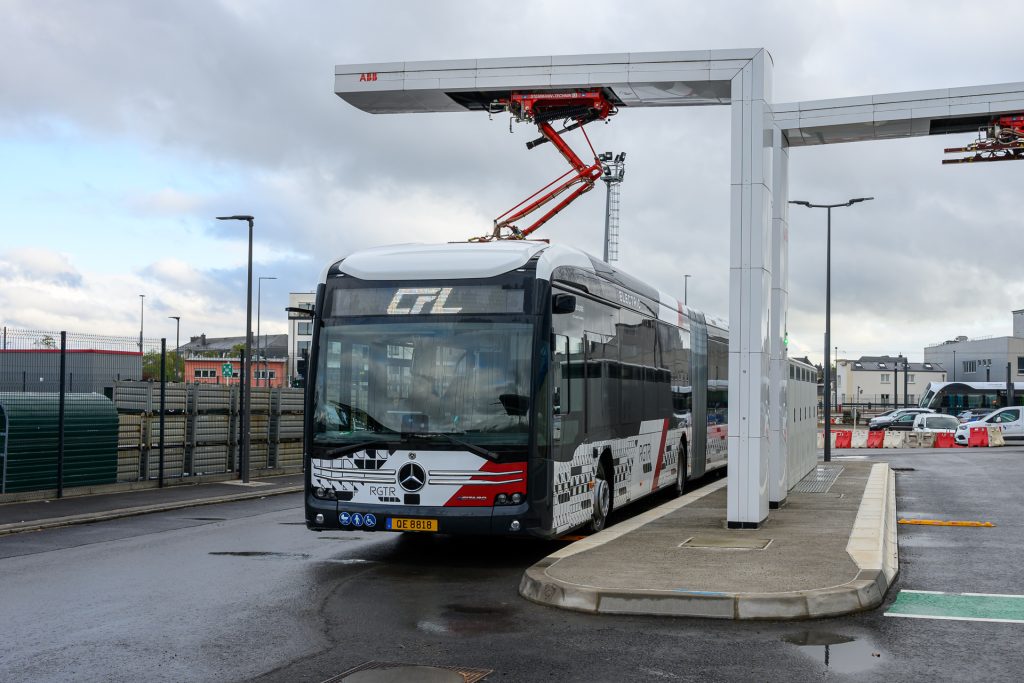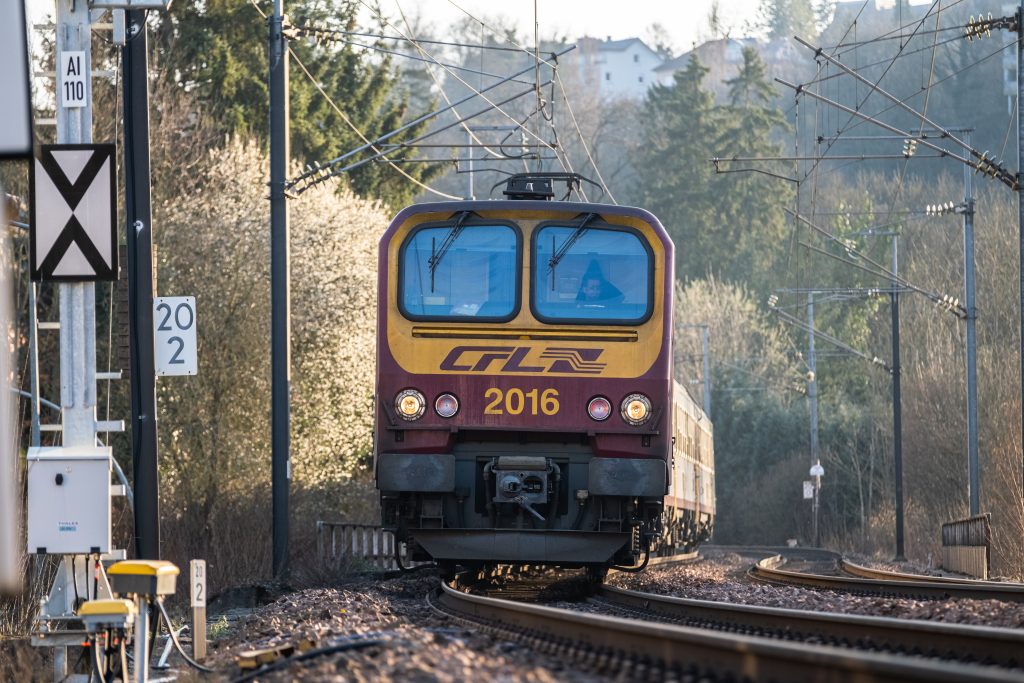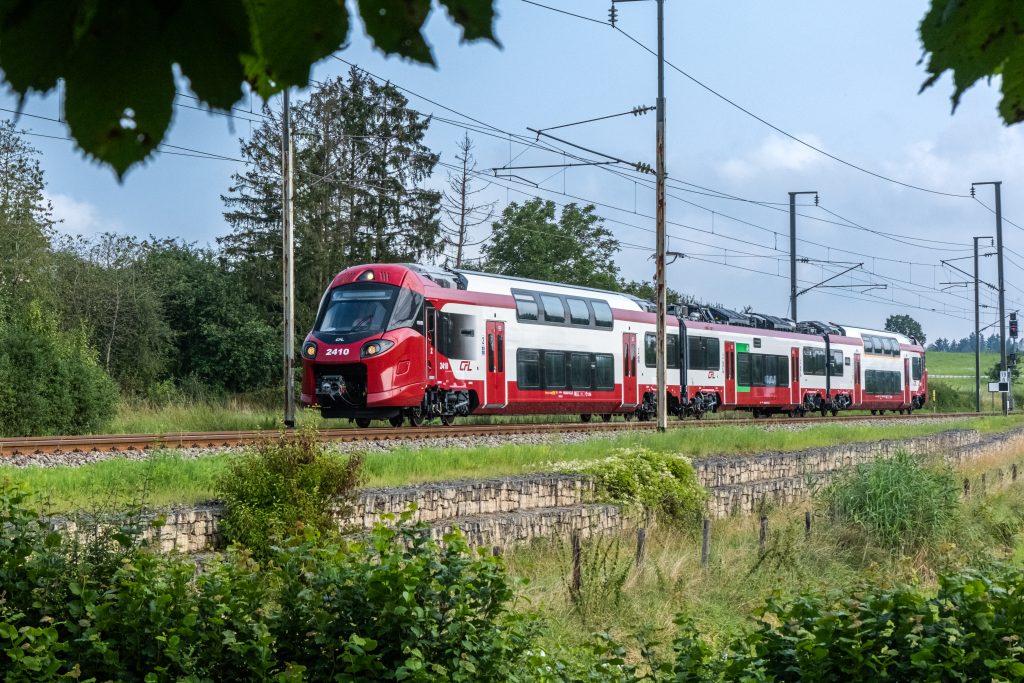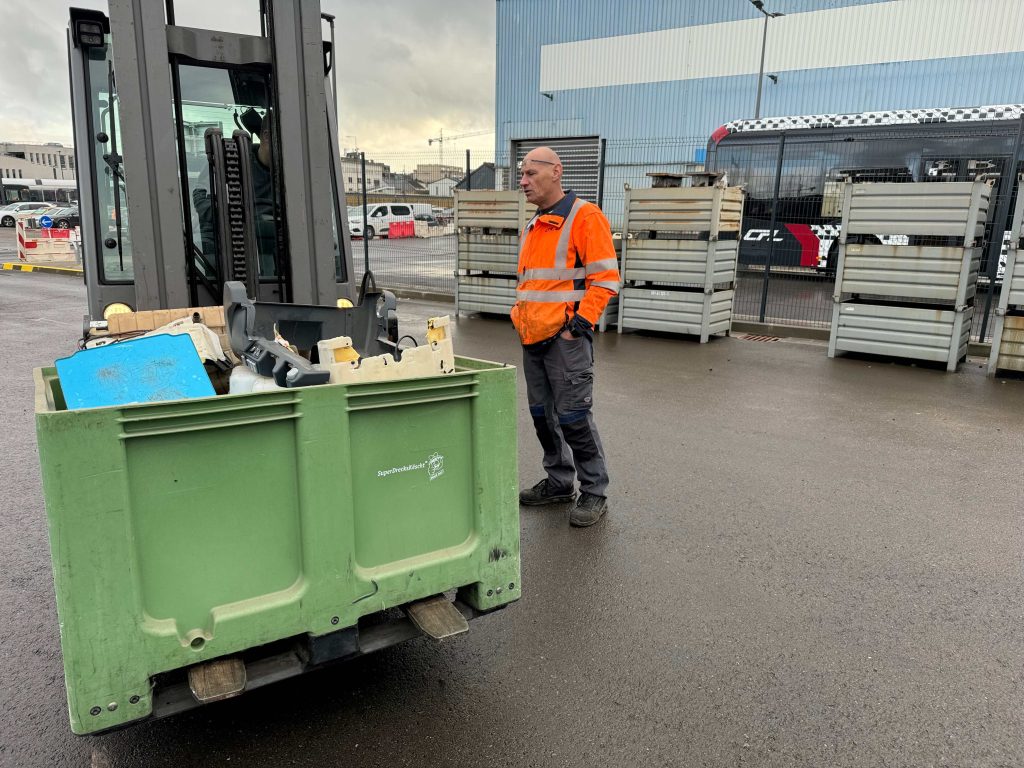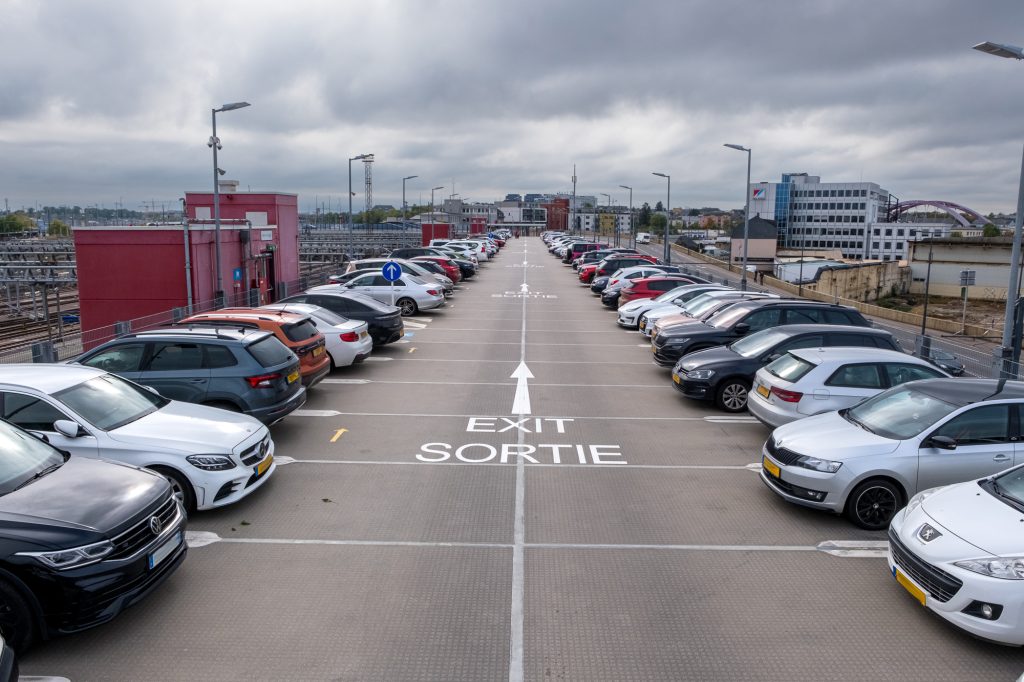
Repair Cafés: Connections That Are Good for the Planet
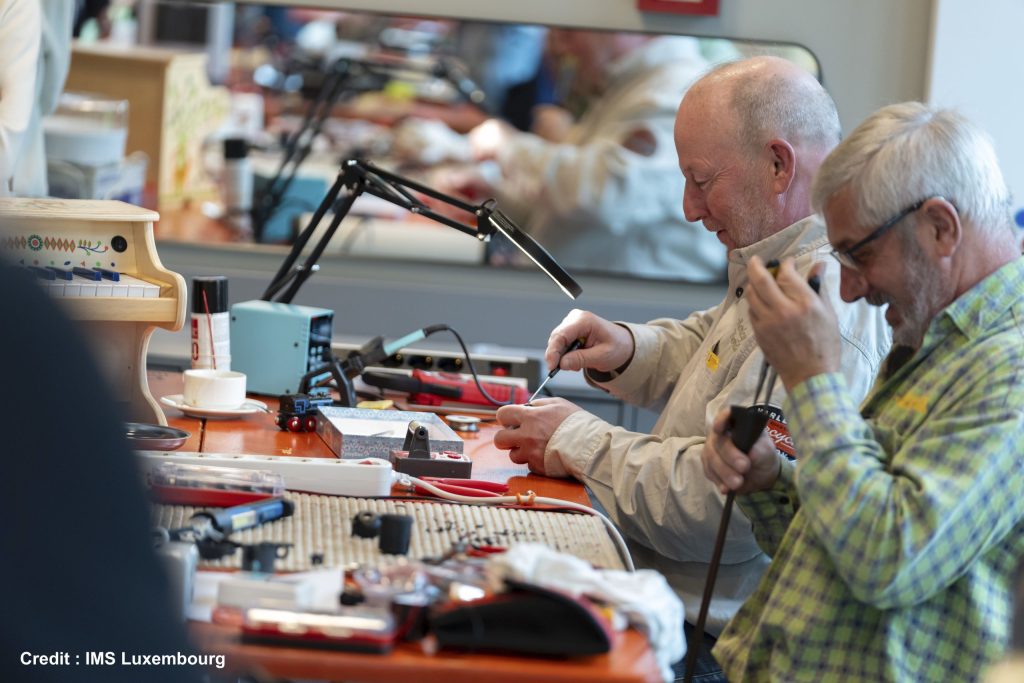
What if repairing became a simple gesture for the planet? This question is being raised during the European Week for Waste Reduction, which this year focuses on electronic waste. Among the initiatives tackling this global issue, Repair Cafés combine solidarity, resourcefulness, and ecological transition with every repair of a device or garment.
Phones, freezers, coffee makers, computers… These objects are part of our daily lives. Their common point? Sooner or later, they will end up in the category of WEEE: Waste Electrical and Electronic Equipment.
11 kg of WEEE per person
According to the European Parliament, an average of 11 kg of WEEE was collected per inhabitant in the EU in 2021. As electronic equipment becomes increasingly widespread, it must be considered throughout its entire production and consumption chain. This theme is at the heart of the traditional European Week for Waste Reduction (EWWR), organized from November 22 to 30, 2025, in which CFL is took part again at Luxembourg Station on Tuesday, November 25 (see below).
60% of items repaired on site
Among the good practices that help reduce WEEE volumes and encourage more responsible consumption, “Repair Cafés” have carved out a strong presence in many countries since their creation in 2009. The concept relies on the availability of volunteer repairers and Repair Café organizers, ready to welcome owners of broken items that are not yet “ready for the scrap heap.” This original idea was conceived in Amsterdam by journalist, environmental activist, and city councilor Martine Postma.
“Thirty-five municipalities regularly organize a Repair Café, which earns them extra points in the Klima Pakt,” notes Ben Bossi, coordinator of Repair Café Lëtzebuerg and energy transition at the non-profit CELL, which manages Repair Cafés in collaboration with the Repair Café Lëtzebuerg association. “The results are tangible: 60% of items can be repaired on site, 20% are repairable but require more work, and 20% are not repairable at all.”

The initiative is based on simple participation rules: repairs must be free of charge, must not compete with commercial businesses—such as in the automotive or IT sectors—and do not include textile alterations. “Three-quarters of the items are electronic, but we also see high demand for clothing repairs and bicycle maintenance,” adds Ben Bossi.
Fighting planned obsolescence
Against planned obsolescence, 450 volunteer repairers are active in various locations, sharing their experience, passion, and simply helping residents of their community or visitors from further afield. Meetings are sometimes initiated by municipalities, sometimes by volunteers. Neighboring municipalities, such as those in the east of the country, even coordinate their event calendars.
“Repair Cafés help create social connections at the local level, while giving a second life to useful objects that often also hold sentimental value,” adds Ben Bossi.
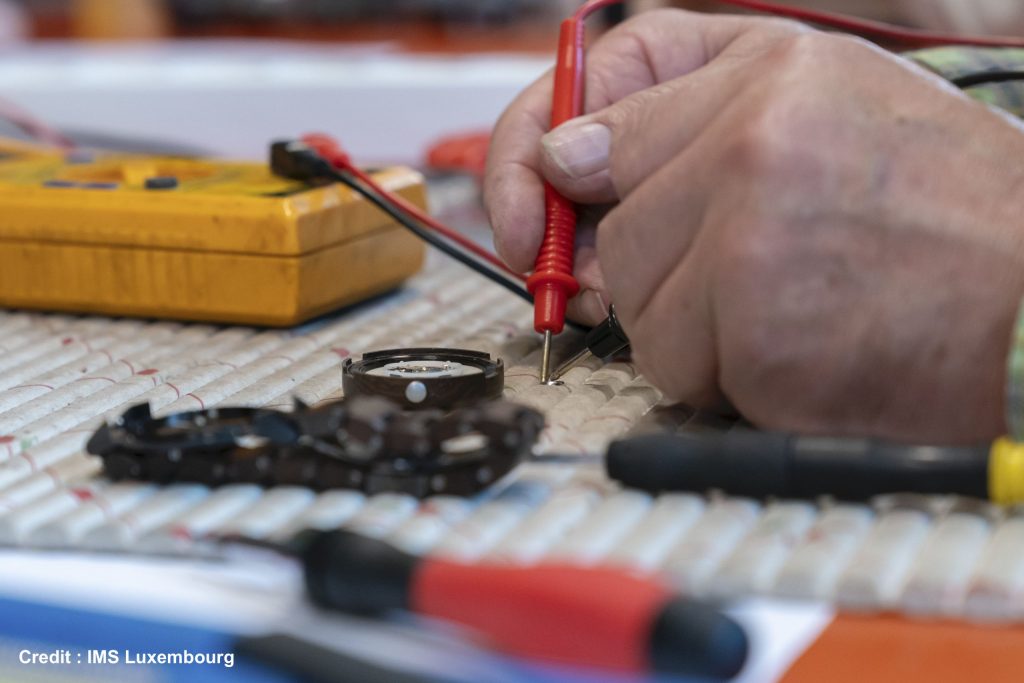
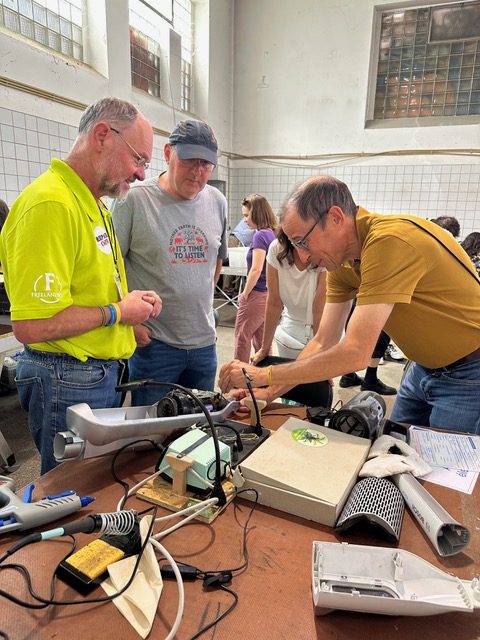
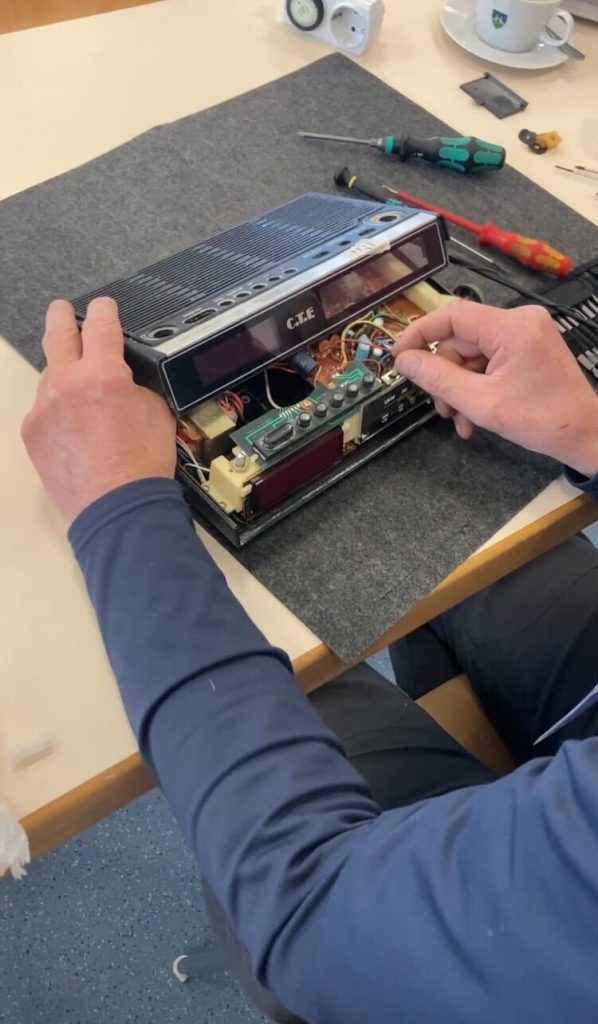
In village halls or through the emergence of shared spaces, Repair Cafés will return to various municipalities in 2026. Around thirty events are already planned. “We are also open to collaborations with high schools and companies, for example, for after-work formats. We will also continue our partnership with Repair Together in the Arlon region, particularly on training initiatives to offer introductions to electronic circuits and repair.”
And why not inspire budding repairers to join the Repair Cafés, which CELL hopes will one day be present in all 100 municipalities of the country.
More information: Repair Cafe Letzebuerg
(Copyright main picture: IMS Luxembourg)
